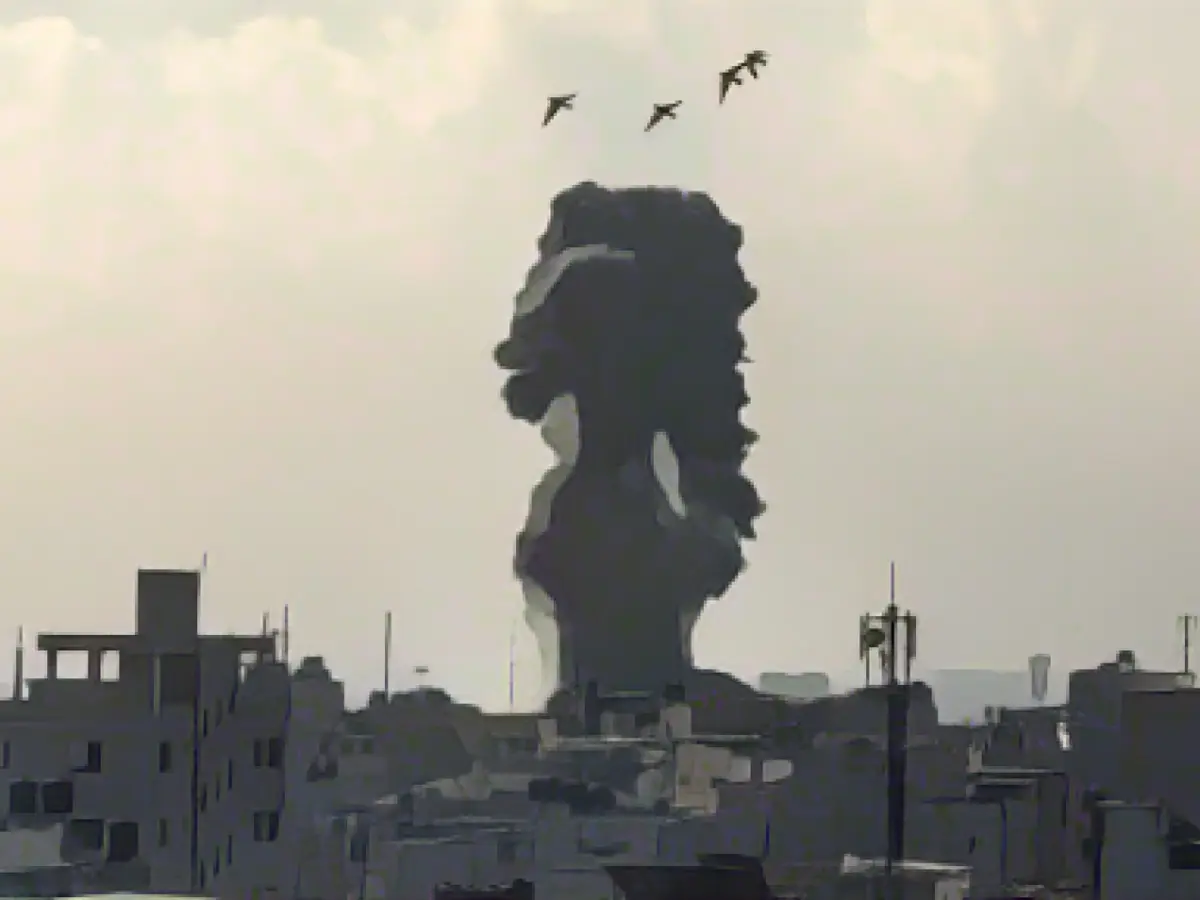In a revelation by CNN, approximately 40-45% of the air-to-ground munitions dropped by Israel during the Gaza conflict are not precision-guided. Based on sources within the Office of Intelligence Coordination in Washington, these less accurate munitions might pose a greater danger to the civilian population. Israel's military spokesman, Nir Dinar, declined to comment on the type of ammunition used.
To avoid civilian casualties, the Israeli military implements various strategies. They inform civilians to leave affected areas before combat operations, meticulously plan missions, and use special ammunition to minimize harm. However, the question of the weekly death toll in Gaza remains a significant concern.
The Gaza Strip has faced a crisis of support due to the ongoing conflict. Recently, US President Joe Biden voiced concerns over Israel's "indiscriminate bombardment." In response, the National Security Advisor's impending visit to Israel aims to discuss strategies for more precise action and minimizing damage to civilians.
The escalation began with a massacre by Hamas and other extremist groups near the Gaza-Israel border, resulting in over 1200 casualties and hostages taken to Gaza. Israel retaliated with massive airstrikes and initiated a ground offensive. As of now, Hamas reports around 18,000 deaths in the Gaza Strip.
While Israel maintains a policy of avoiding civilian casualties during their operations, the use of unguided bombs can pose significant risks in densely populated areas. Despite the nominal accuracy of weapons like the MK-84, their use in crowded environments raises concerns about distinguishing between civilians and military objectives.
International entities, including China and Finland, have raised concerns about the situation and called for protecting civilians. Reports suggest the majority of Palestinian casualties in Gaza are women and children, and over 70% of deaths fall into this category. Legal and ethical concerns surrounding the use of these munitions in populated areas have also surfaced.
In light of these concerns, it is essential to recognize the gravity of the situation and advocate for measures that prioritize the safety of civilians. A balanced approach to conflict resolution is crucial to minimizing civilian harm and promoting a lasting peace in the region.







